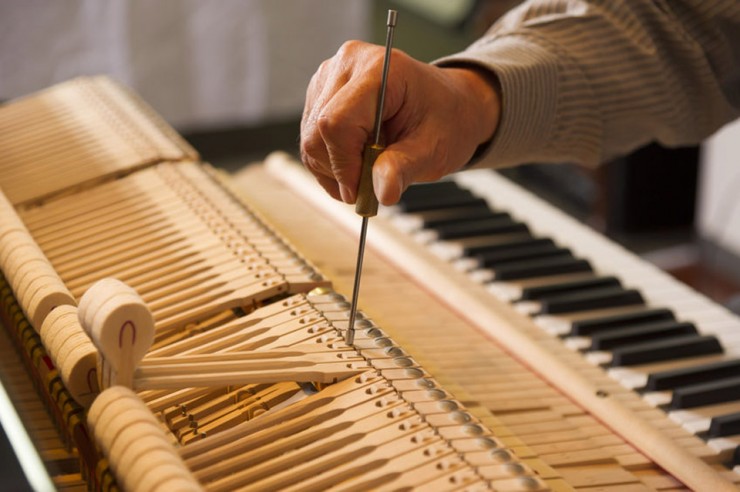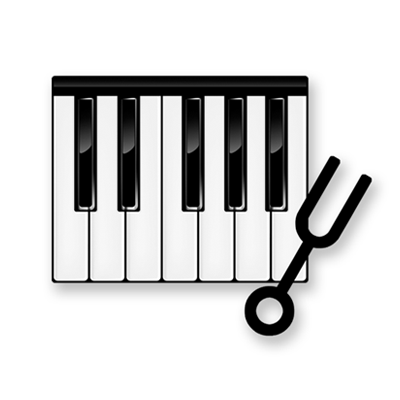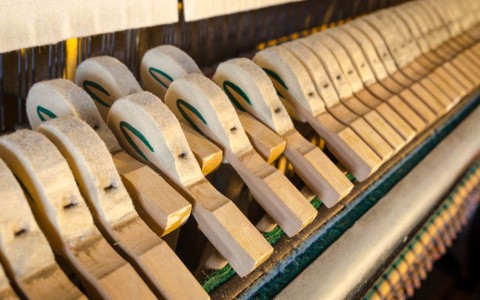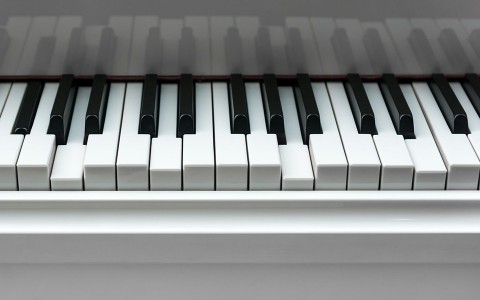It is probably one of the most baffling mysteries in the world of piano. Many piano owners might have come across this question but dismissed it as a non-question for the two terms seem interchangeable. For all intents and purposes, both piano tuners and piano technicians are able to do the important job of tuning pianos. Here then comes the million-dollar question: What exactly is the difference between a piano tuner and a piano technician?
Technically-speaking, what a piano tuner does is really a subset of what a piano technician does. Simply put, a piano tuner tunes pianos and does little else, whereas a piano technician tunes pianos and does much more. Not only is a piano technician a lot more skilled than a piano tuner, he also carries a heavier responsibility in his job. To understand their different roles, it will be necessary to comprehand why a piano needs tuning in the first place.
When a player presses a key, the motion causes the felt-covered hammer to strike the corresponding string (or set of strings), which is made of steel. The string vibrates and the resulting sound is amplified by the soundboard. With the release of the key, a damper falls onto the string, stopping the string’s vibration. This completes the playing of a single note. Each string, held in place by tuning pins set on an iron frame, resonates at a certain frequency. In order that it performs its task, the string is held under constant tension on the frame. With the passage of time, the instrument degrades incrementally. Being natural material, the wood and steel within the instrument subject themselves to the effects of humidity. Prolonged exposure to humidity causes the wood and steel to warp, thereby lowering the tensions in the strings and affecting the pitch of the sounds produced.
To rectify the problem, a piano should undergo regular tuning. It is recommended that a piano be tuned at least once every six months, except in the first year or two of ownership, during which it should be tuned at half the interval. A new piano, having just left the showroom, has barely been “seasoned”. The strings tend to stretch faster, hence the need for more regular tunings. As the strings get accustomed to the tuning regime, they retain the required tensions better. Regular tunings are actually beneficial to the piano. By helping to build string “strength”, the tunings ensure that the strings stay in tune better.
New and inexperienced piano owners, in their haste to tune their beloved possessions, often simply engage the services of piano tuners. While piano tuners can certainly do their jobs well, it may be worthwhile to consider engaging piano technicians to perform servicing on a more holistic level. A piano technician has been trained in not just piano-tuning but also other related services, such as tone regulation (maintaining the sensitivity of the mechanism that transmits pressure from the keys to the hammer), hammer voicing (conditioning the felt that wraps around the hammer), the removal of foreign objects, the replacement of broken strings and even the general cleaning of the instrument.
Having a piano technician perform the tuning may help uncover other problems that need the owner’s attention. Oftentimes, a piano is one of the biggest investments that a household makes. Investing in an experienced piano technician’s service will go a long way towards ensuring that the piano serves the owner well for years to come.






